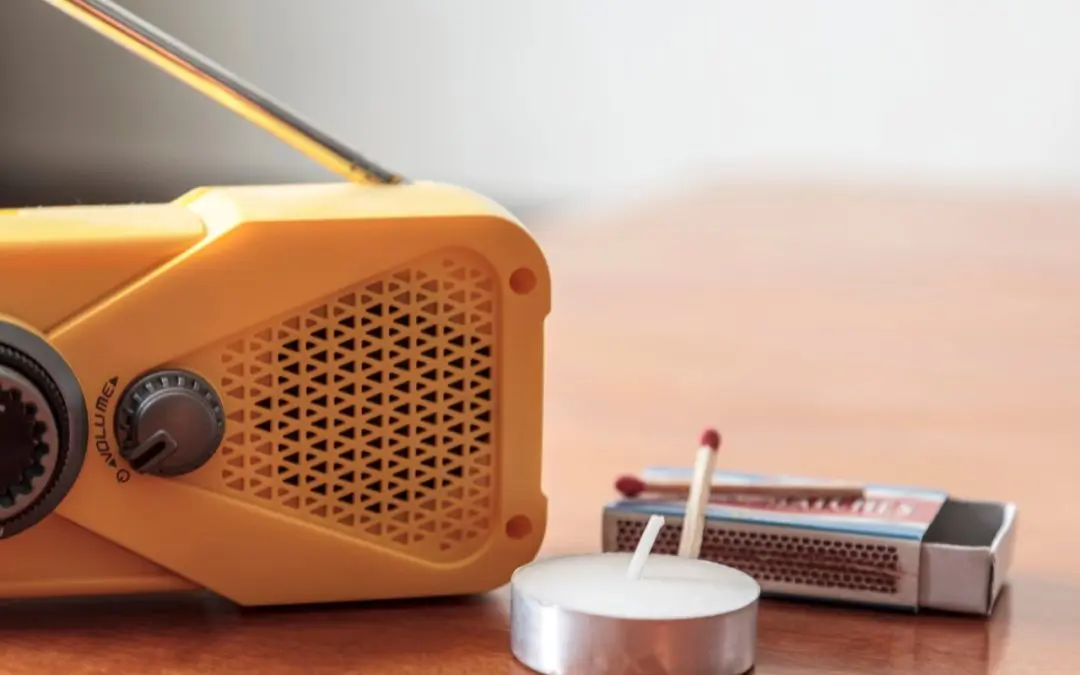Power outages can happen at any time, often without warning. Whether caused by storms, accidents, or grid failures, losing electricity can be inconvenient at best and dangerous at worst. Being prepared can make all the difference in staying safe and comfortable until the power comes back on. Here’s what you need to know to prepare for a power outage.
Stock Up on Essentials When You Prepare for a Power Outage
The first step in preparing for a power outage is ensuring you have the essentials on hand. Start with drinking water. If the outage lasts an extended period, water supplies could become compromised, so store at least a few days’ worth of bottled water per person in your household. Non-perishable food items are also a must—canned goods, dried fruit, and snacks that don’t require refrigeration are great options. Make sure you have a manual can opener, too.
Your home should have an adequate supply of flashlights and extra batteries. Candles and oil lamps can work in a pinch, but they pose a fire hazard, so use them cautiously. A battery-powered or hand-crank radio can help you stay informed about weather conditions and emergency updates. If you rely on medication, keep an emergency supply handy, along with a first aid kit in case of minor injuries.
Plan for Heating and Cooling
Extreme temperatures can make a power outage more than just an inconvenience. In the winter, have extra blankets, warm clothing, and a safe alternative heat source like a propane or kerosene heater. If you use one of these heaters, always ensure proper ventilation to prevent carbon monoxide poisoning.
In the summer, staying cool can be challenging without air conditioning. Keeping a few battery-operated fans and extra ice packs in the freezer can help. When the power goes out, close curtains and blinds to block out heat from the sun, and drink plenty of fluids to stay hydrated.
Keep Electronics and Communication Ready
Cell phones and other devices can become lifelines during an outage. Keep them fully charged when you know bad weather is approaching. Portable power banks and solar chargers can be invaluable if the outage lasts more than a few hours.
A landline phone that doesn’t rely on electricity can be useful, as cell towers may go down during major events. If you use a generator, ensure it’s in good working condition and only operate it outdoors to prevent carbon monoxide poisoning.
Protect Your Appliances and Food
A sudden power outage can damage electronic devices and appliances. To prevent this, unplug major electronics like computers, televisions, and kitchen appliances when the power goes out. Use surge protectors to safeguard sensitive devices from potential power surges when electricity is restored.
Refrigerators and freezers can keep food cold for several hours if they remain closed. A refrigerator will maintain its temperature for about four hours, while a full freezer can stay cold for up to 48 hours. If the outage is prolonged, consider transferring perishable food to a cooler with ice.
Know What to Do During and After an Outage
When the power goes out, check whether the outage is localized to your home or affecting the entire neighborhood. If it’s just your house, check your circuit breaker and contact your utility provider. If it’s widespread, report the outage to your electricity provider and follow local emergency updates.
Stay indoors if possible, especially during severe weather events. Avoid opening the fridge and freezer unnecessarily to preserve food. If using candles or alternate heat sources, keep them away from flammable materials and never leave them unattended.
Once power is restored, take precautions before resuming normal activities. Check refrigerated food for spoilage—when in doubt, throw it out. Gradually plug electronics back in to avoid overwhelming the power system, and make sure your smoke and carbon monoxide detectors are functioning properly.
By preparing ahead of time, you can minimize the inconvenience and dangers of a power outage. Stay informed, keep supplies ready, and have a plan in place to keep your home and family safe.
FAQs on How to Prepare for a Power Outage
How long should I prepare for a power outage?
It depends on your location and the likelihood of prolonged outages. At a minimum, prepare for 72 hours without power, but if you live in an area prone to hurricanes or winter storms, consider stocking up for a week or more.
Should I buy a generator?
A generator can be a great investment, especially in areas with frequent outages. If you get one, ensure it’s used safely outdoors and properly maintained.
How can I cook without electricity?
Camping stoves, propane grills, and even fireplaces can be used for cooking. However, to prevent carbon monoxide buildup, they should always be used in well-ventilated areas.
Will my water supply be affected?
Your water supply could be disrupted if you rely on a well with an electric pump. If you expect an outage, have bottled drinking water on hand and fill bathtubs and sinks in advance.
What should I do if I have medical devices that need power?
If you or someone in your household depends on electrically powered medical devices, notify your utility company in advance so they can prioritize restoration. Consider investing in a backup battery or generator for emergency use.
Brand Name Home Inspections offers home inspection services to Northern California. Contact us to request our services.

